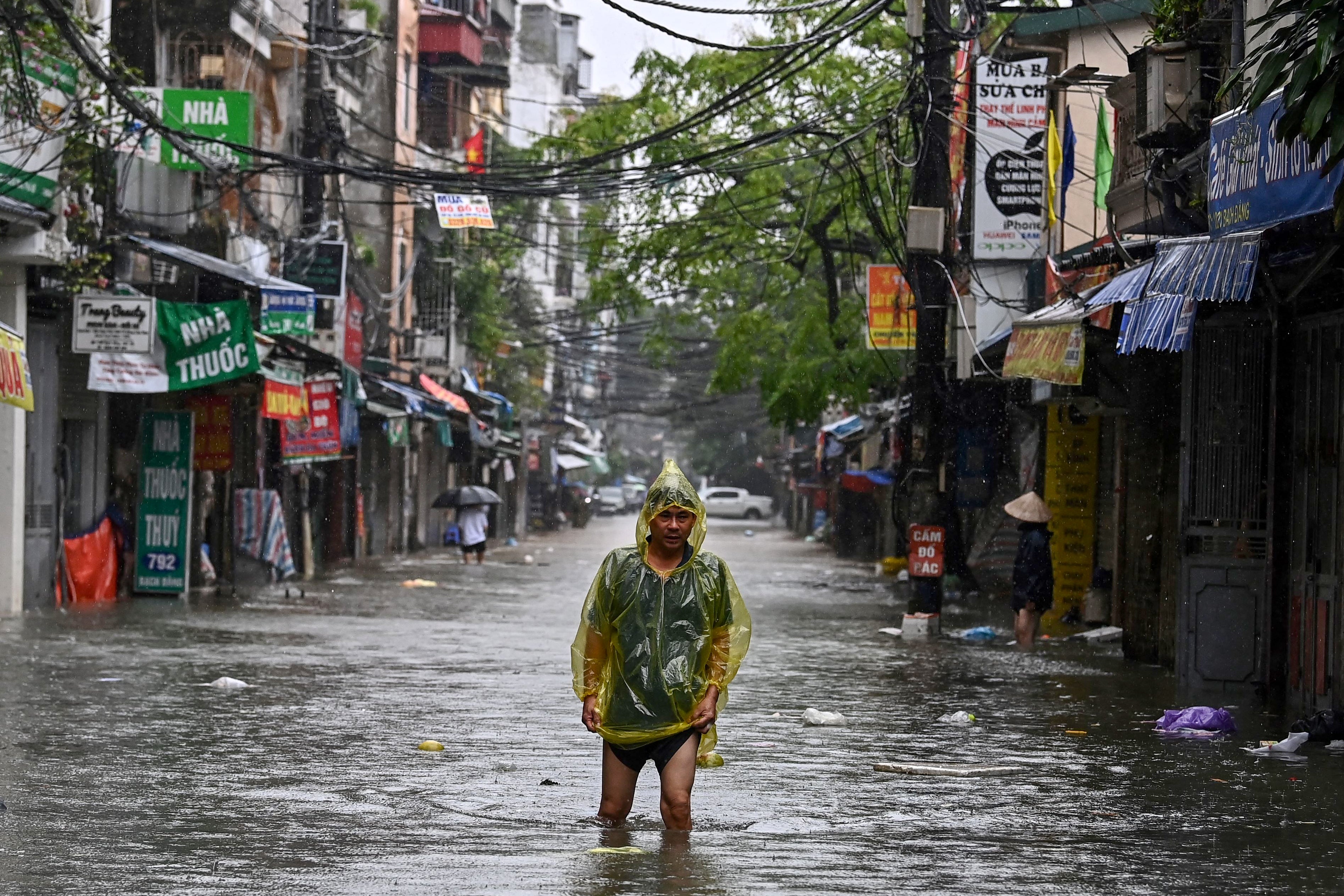Your support helps us to tell the story
As your White House correspondent, I ask the tough questions and seek the answers that matter.
Your support enables me to be in the room, pressing for transparency and accountability. Without your contributions, we wouldn’t have the resources to challenge those in power.
Your donation makes it possible for us to keep doing this important work, keeping you informed every step of the way to the November election

Andrew Feinberg
White House Correspondent
A Thai football coach who was trapped with his players in a flooded cave six years ago and rescued in a complex operation that made headlines around the world found himself stranded again this week.
Ekkapol Chantawong was stuck on the roof of his house after flash floods struck Thailand’s Mai Sai district. The flooding was caused by typhoon Yagi, which wreaked havoc in neighbouring Vietnam, Laos and Myanmar.
He was among thousands of people stranded in the floods that prompted the Thai government to deploy military special forces in the northern provinces on Thursday.
Flood waters had started receding from some areas of Mai Sai but several riverside settlements were still flooded, district head Narongpol Kid-an said.
The flood waters arrived in Mr Ekkapol’s village on Tuesday and rose quickly, forcing him and his family to spend the night on the roof of their house.
“I was scared but I told myself I have to be calm. Wait and assess the situation,” he told AFP by telephone.

Mr Ekkapol said he was drawing on his 2018 experience with the “Wild Boars” team when they got trapped inside the Tham Luang Nang Non cave in northern Thailand due to flash floods.
The coach and 12 footballers of his team, then aged 11 to 16, were exploring the cave after practice when it suddenly flooded after a heavy monsoon downpour. A pair of British divers found the group 10 days later.
Instead of screaming or crying, they were sitting quietly in the dark, meditating.
Mr Ekkapol, who had spent a decade as a Buddhist monk, could meditate for up to an hour at a time, his aunt told the Associated Press. And he reportedly guided the trapped boys in the practice when they needed it the most.
They were eventually rescued after 18 days.
Mr Ekkapol said the water levels had reduced by Thursday, allowing him to go down to the ground floor of the house. But they were unable to leave due to strong water currents outside the building.
“I do not think it is different,” he said, comparing his current situation to the 2018 incident.
“First, we have to focus and start solving the problem we are facing.”
“I do not feel more pressure with this stranding. I see more of a way out,” he told AFP. “I hope I don’t have to go up on the roof again tonight.”
He shared videos of him and his family stranded on the roof of the house and flood waters gushing through the street below.
Civilian authorities, supported by naval special forces, were using boats and helicopters on Thursday to conduct rescue operations.
“The situation is very delicate,” Mr Narongpol told Reuters. “When it rains, the water rises very quickly.”
Flood waters had also entered Chiang Rai, one of the largest settlements in northern Thailand, inundating key roads and urban areas and forcing the cancellation of nine of the 10 scheduled flights at the city’s airport.
The airport itself was not flooded but rising waters had made the roads to the facility impassable, said Kornchit Chomphudeng, head of Chiang Rai’s Office of Disaster Prevention and Mitigation.
“The flooding this time has spread over a wider area than the recent floods,” he said.

